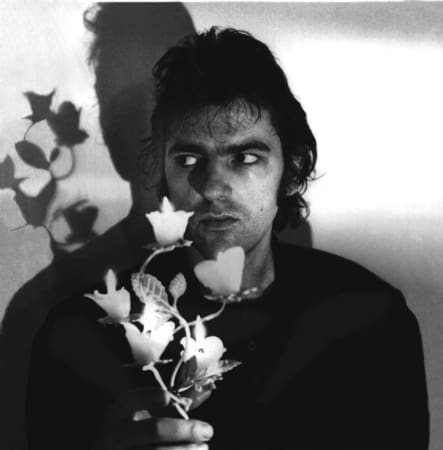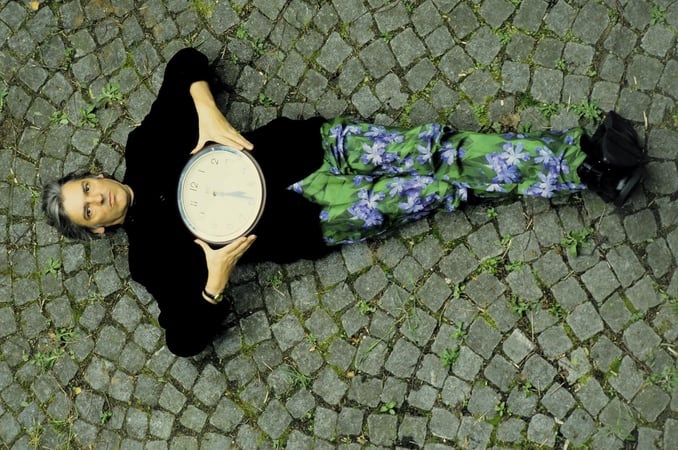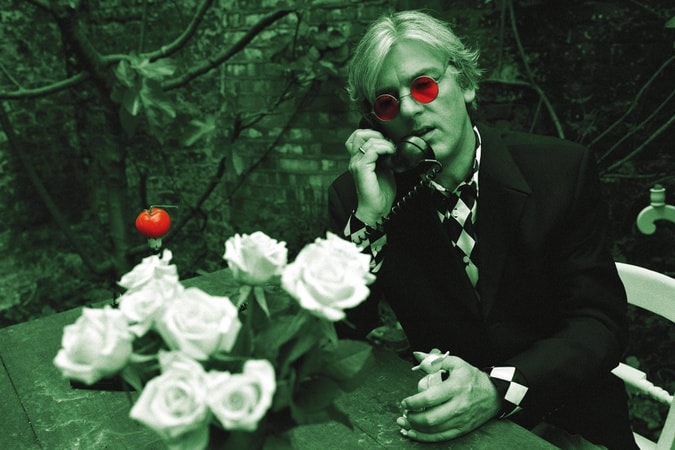The world first became aware of Robyn Hitchcock in 1980. He was with the Soft Boys, singing:
Ahh aah aah
Wanna destroy you!
It was the punk era, and the song boosted the band. But it also deceived. Hitchcock wasn’t, as it turned out, much of a nihilist. Now 63, he has proved more durable and complicated than his vintage. Hundreds of songs have poured forth, psychedelia-tinged, engraved with daft and sorrowful words.
My dead wife’s upstairs
She’s still wearing flares
She talks out loud
But no one hears
His work became more personal, too, or apparently so.
I water the tomatoes and I think of you
“No one’s ever watered me the way you do
And so a career that might have been a good bet to burn out with the Soft Boys has taken a long and curious path: from busking in Cambridge, England, across what he describes as the digital void of the ’80s, to Nashville, where he now lives. And though Hitchcock has had only a smattering of radio hits – “Balloon Man,” most prominently – his work has inspired devotion among songwriters of the next generation, including Colin Meloy of the Decemberists, who has been a cheerleader.
Before a show at the Arden Club in Delaware recently, Hitchcock sat down to talk, with wry detachment, about taking root in the ’80s despite his affinity for the ’60s, his admiration of Bob Dylan’s work, and his own next album.

Q: How did you end up in Nashville?
A: My partner, Emma [Swift], was living there when we met. She’s Australian but she’s – they call her an Americana singer. We are both Americana acts, funnily enough. Mature Brits of my age – Billy Bragg, Richard Thompson, Nick Lowe and myself – are now deemed Americana artists. Ten years ago, we would have been alt-country.
That seems like a pretty broad category. What does “Americana” mean now, anyway?
It means it doesn’t have tattoos and it doesn’t use a lot of amplifiers – it’s anything that doesn’t require a lot of plumage or volume, and as you get older you tend to shed both. I’m probably about a quarter of the volume and I’m half the speed of the Soft Boys. As you get older, you get quieter and slower and you become Americana. It helps that I’m in Nashville now.
You’ve been around long enough that people are almost startled by your longevity. Has your approach to performing and to writing songs changed?
I think you gain things and you lose things. You get weathered. When you’re younger, you have to rely on your imagination and your intuition. When you’re older, there’s that much more to remember and much less to imagine. More and more of my stuff is based on people that I’ve known and on things that actually happened.
When you’ve got so many songs, and fans who began with you more than 30 years ago, how do you balance their expectation for the oldies and what you’re working on now?
Fortunately, having never been burdened with a hit, I’m not tethered to the past.
You’ve had some hits.
I’ve had some radio hits, but it’s not like, “Oh, my God, if he doesn’t play that one I’ll feel cheated.” I’ve accepted the fact that I’m rooted in the past of my listeners and myself. Doing all this [touring] pays for my songwriting habit. People really get something out of hearing the old ones, the songs they heard when they were 15, and I’ll play some. I then scuttle to Nashville and I spend my disposable income on recording new songs. There’s piles of stuff lying around, which will probably come out later.
Your most recent album, “The Man Upstairs,” had as many covers as original songs, including ones by the Doors and Psychedelic Furs. Coming from someone so well known for writing their own, the covers came as a surprise.
Well, you have these songs lying around in you for years. They’re where you start from. They’re part of your matrix, and they don’t necessarily dissolve and go away. They give you something to aim at and miss. They remain in you, and I think, after all, they become yours. You don’t collect the publishing royalties, but they are.
For instance, Dylan’s “Visions of Johanna” is still my favorite song, and I’ve been singing that for 45 years off and on. It took me 15 years to even feel I could do it in public. But I feel it belongs to me more than it does to Dylan, because if he does it, he will drop a couple of verses, scramble the tune, sing the words inaudibly, and he knows his ghouls will be saying: “Great Caesar’s Ghost! Bob did ‘Visions of Johanna.’ Oh, master.”
As influences on your work, you’re as likely to cite “Dr. Who” as your admiration to Bob Dylan.
Dr. Who was a creature of the mid-’60s who was a sort of trans-dimensional sage. As a 10- or 11-year-old, I thought: “Oh, my God, this is what I want to be. I just want to be a trans-dimensional sage. That’s not asking too much?” He flies through time and space, but he doesn’t know where or when he’s going to land. It’s all random. He has a sonic screwdriver, but he can’t find it. How human is that?
What’s the forthcoming album going to be like?
It looks at my old life in England, and some of the characters in it, through the prism of Nashville. Brendan Benson [of the Raconteurs] produced and engineered it, and he prompted me to return one more time to the two-guitars, bass, drums and harmonies template, cut this time with Nashville players and a little pedal-steel. I’ve always been drawn to the portal between psychedelia and country, though whether this is either is questionable.

© 2016, The Washington Post






